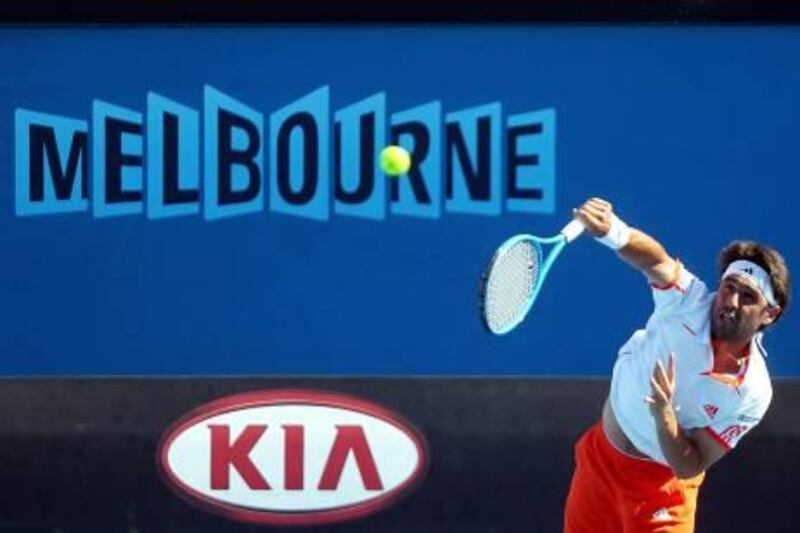MELBOURNE // Top players moved to dampen down talk of a potential revolt and rift in the men's ranks as the Australian Open got underway in stifling conditions on Monday, with Rafa Nadal and Roger Federer both winning.
As the grand slam tournament began, some of the men began to openly discuss the possibility of a strike later in the season unless they and the ATP could come to an agreement on a more equitable split of prize money and a revamped playing schedule.
"It's [strike] such a dangerous word to use," Federer, the world No 3, said after his first-round victory over the Russian qualifier Alexander Kudryavtsev.
"That's why I always say, 'Let's try to avoid it as much as we can'. I think that would be the best for all of us: you guys [media], fans, tournaments, players."
Earlier, Ukraine's Sergiy Stakhovsky said a move to boycott the Australian Open over prize money was supported by the majority of ATP players but not followed through as it would have been unfair on tournament organisers.
"Some of the players were suggesting that we're not really going to play here," the world No 65 Stakhovsky said, referring to an ATP players' meeting on Saturday.
"[They] got quite a lot of votes for that, too. But it was just not right, because we're here and the Australian Open would have no chance to change anything.
"It was enough [votes not to play]. It was more than enough."
Players have complained about prize money for years, saying grand slam event purses were too small in relation to the revenues they brought in, and too lopsided in favour of the top players.
The matter came to a head at the ATP players' meeting, with one player, the 32nd seed Alex Bogomolov Jr, of Russia, tweeting over the weekend of a possible strike at Melbourne Park.
Stakhovsky said most of the top players were sympathetic to the lower-ranked players' demands. "More than 80 per cent of the top players are on the same page as the rest of the players," Stakhovsky said. "It's really kind of nice of them to think of other players."
The top players are required to compete in all the four grand slams, eight Masters 1000 events, the season-ending World Tour Finals and a handful of lower-tier tournaments.
"We all have issues. I have issues. My issue is that Indian Wells and Miami [in the United States] are mandatory events and if I'm losing the first round I am minus [earnings]," Stakhovsky said.
"It's four weeks spending in the States, it's airfares and it's hotels ... If you're out in the first round, you're unable to pay your coach."
Players previously raised the possibility of going on strike over the crammed tennis calendar after the rain-disrupted US Open.
Stakhovsky suggested players could yet elect to take strike action in future tournaments but were still holding out hope of changes and, in any case, needed to be better organised. "You can't just stand up and say we don't play. You have to have a certain strategy," he said.
The ATP declined to comment on the players' meeting but last year announced total prize money would increase 20 per cent in the three years from 2012 to 2014.





